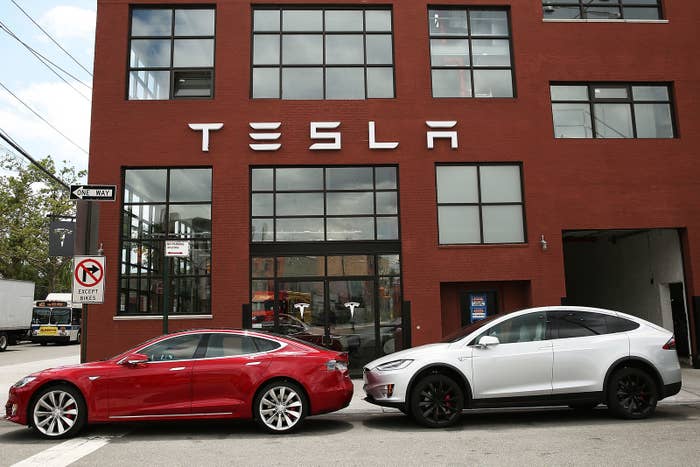
All Teslas being built now and in the future will be equipped with self-driving hardware – though they won’t be shipped to customers with self-driving software immediately, the company announced Wednesday.
That equipment includes, most notably, eight cameras that give the cars 360 degrees of vision. The company will roll out software updates with “significant improvements in autonomous capability” every 2-3 months,” Tesla CEO Elon Musk told reporters on a conference call.
“I feel pretty good about this goal, to do a demonstration drive of full autonomy all the way from LA to New York,” Musk said on the call. “From home in LA to dropping you off in Times Square in New York, and having the car go and park itself – by the end of next year – without any single touch.”
Automakers and technology companies are racing to develop autonomous vehicles. Last month, Uber began putting customers in self-driving Fords as part of a pilot program in Pittsburgh — albeit with safety drivers behind the wheel, and a copilot monitoring the car’s systems on a laptop in the passenger seat. Ford plans to mass-produce self-driving vehicles for use in ride-hail fleets by 2021. General Motors and Lyft are developing self-driving electric vehicles together.
The announcement comes less than a month after Musk laid out his grand vision to bring humans to Mars using rockets built by SpaceX, his other company — and when Tesla is facing scrutiny from regulators in the US and abroad. The company is under federal investigation for the role its Autopilot software, a driver assistance system, played in recent crashes. (Tesla advises drivers to keep their hands on the wheel despite the definition of the term “autopilot,” which implies that a system can steer itself.) California’s Department of Motor Vehicles has proposed rules that would ban the use of terminology such as “autopilot” for vehicles that aren’t fully self-driving. A German regulator has also taken issue with Tesla’s use of the word “autopilot.”
Musk, and other proponents of self-driving vehicles — from regulators to automakers —largely expect self-driving vehicles to reduce the number of crashes on the road by minimizing the potential for human error. The federal government outlined guidelines for self-driving vehicles last month, and the head of the US Department of Transportation told BuzzFeed News they’ll go mainstream in about 5 years.
“It’ll take us some time in the future to complete validation of the software and eventually get the required regulatory approval,” Musk said on the conference call. “The foundation is laid for the cars to be fully autonomous at a safety level we believe to be at least twice that of a person, if not better.”
